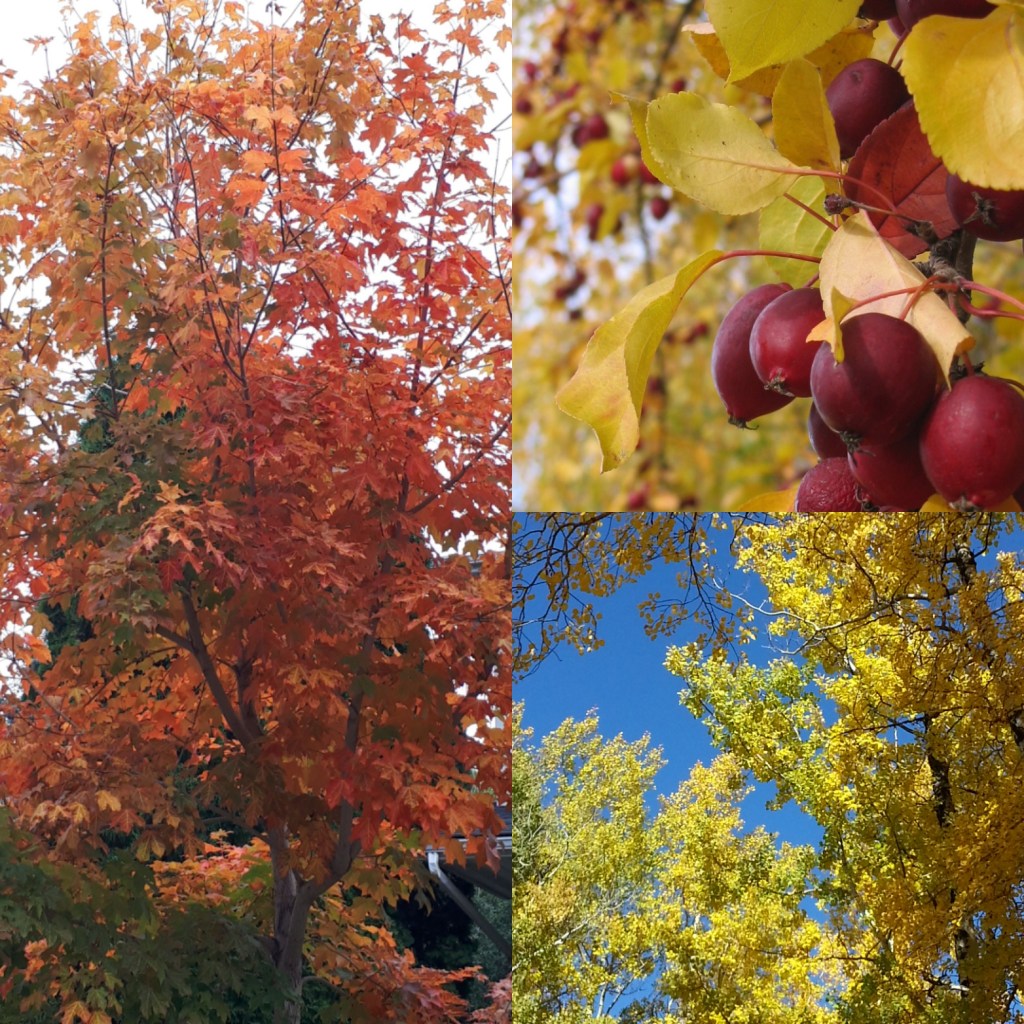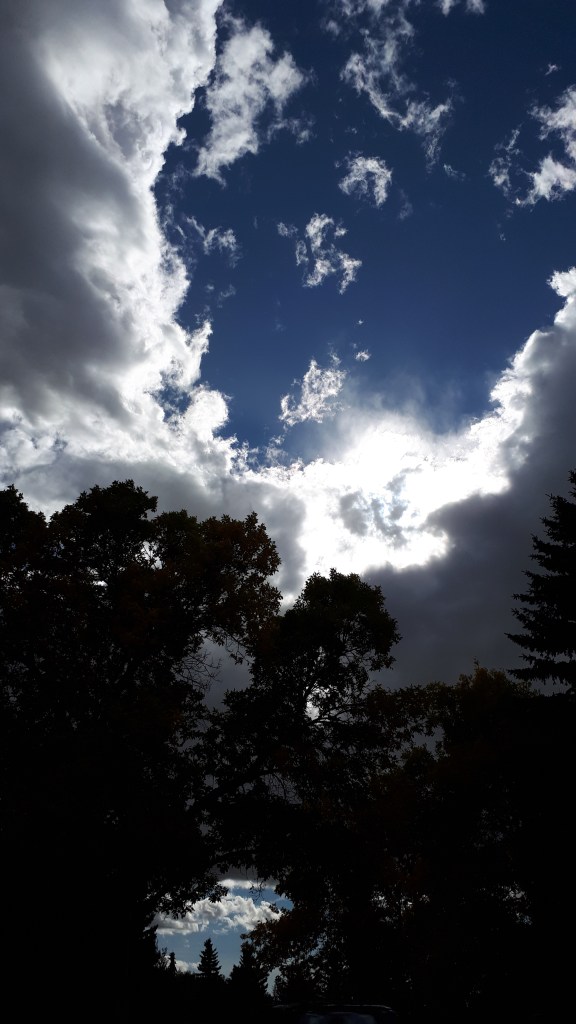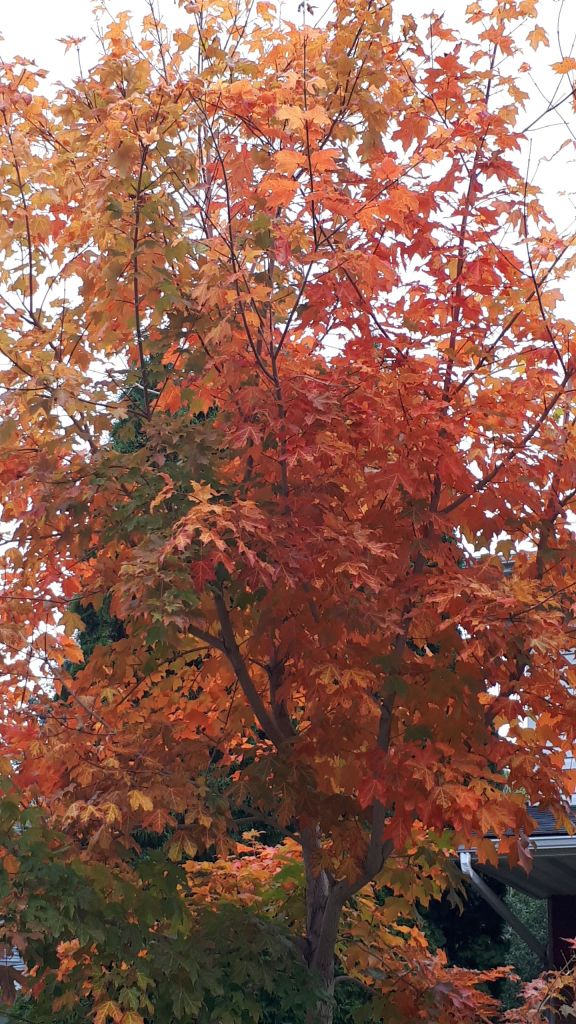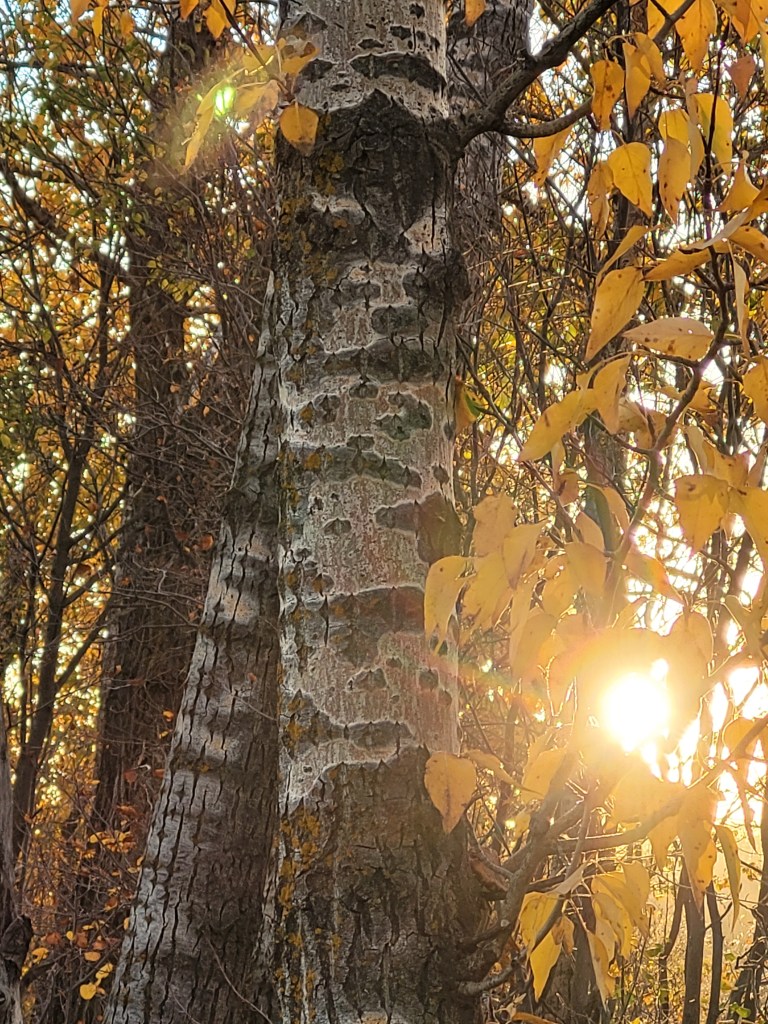
“A tree is a light-catcher that grows life from air.”
Maria Popova, “Why Leaves Change Color,” The Marginalian, October 26, 2021
That line stopped me for its simple truth and eloquent beauty.
This morning, basking in the “fall back” gift of an extra hour’s sleep, lingering over coffee with Annie beside me on “her” aptly named loveseat, I started to read Maria Popova’s wondrous words in her weekly newsletter, The Marginalian (formerly Brain Pickings). A click back to last week’s issue, an essay on the process – both scientific and philosophic – of photosynthesis and the colour of autumn leaves. “Could anyone write more beautifully about the magic of this process, this season, and its connotations?” I whispered to myself.
“Autumn is the season of ambivalence and reconciliation, soft-carpeted training ground for the dissolution that awaits us all, low-lit chamber for hearing more intimately the syncopation of grief and gladness that scores our improbable and finite lives — each yellow burst in the canopy a reminder that everything beautiful is perishable, each falling leaf at once a requiem for our own mortality and a rhapsody for the unbidden gift of having lived at all. That dual awareness, after all, betokens the luckiness of death.”
Maria Popova
Every Saturday morning has found me walking in the autumn splendor of Edmonton’s North Saskatchewan River Valley. Having just completed the ninth of twelve weekly stages, I continue to be in awe of the season’s vibrant colours. Too, with the exceptional lack of snow, though this week saw a skin of ice on a large pond, and a patch of thick frozen runoff. Every week, I make photographs from what I see, from what especially shimmers and shines. And without fail, most of those photos are of trees in their golden, vermillion, russet, and bronze glory. Of their transition from fully “dressed” to bare limbed. Some resplendent with red, black, and purple berries; some with tight portending buds. Yesterday I remarked to my husband that no one can say we don’t have colourful autumns here on the prairies. He reminded me it’s that we don’t typically have the massive globes of colour from the towering hardwood oaks and maples. Yes, here one must look closer in, not quite so high up, nearer to the ground for such treasures.
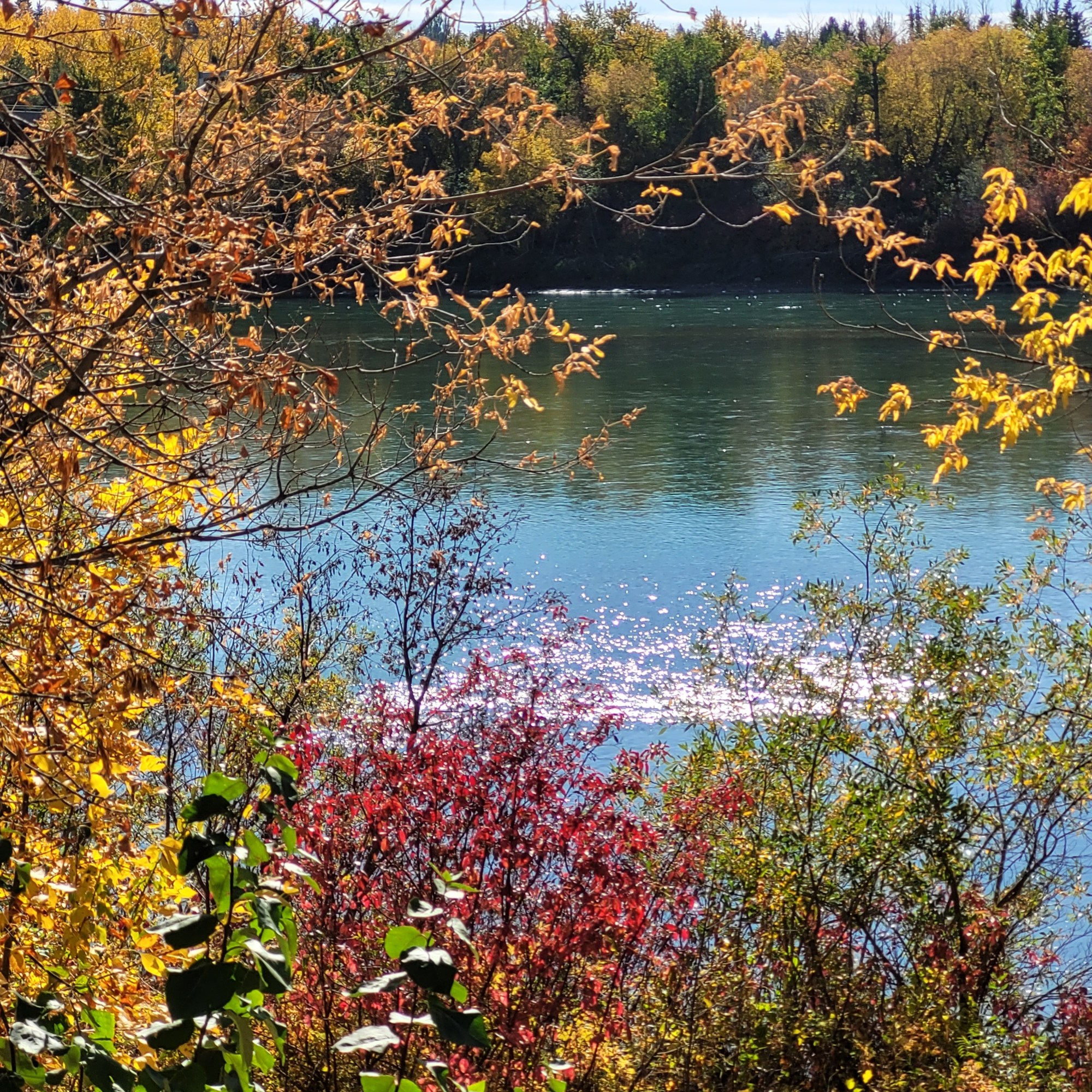


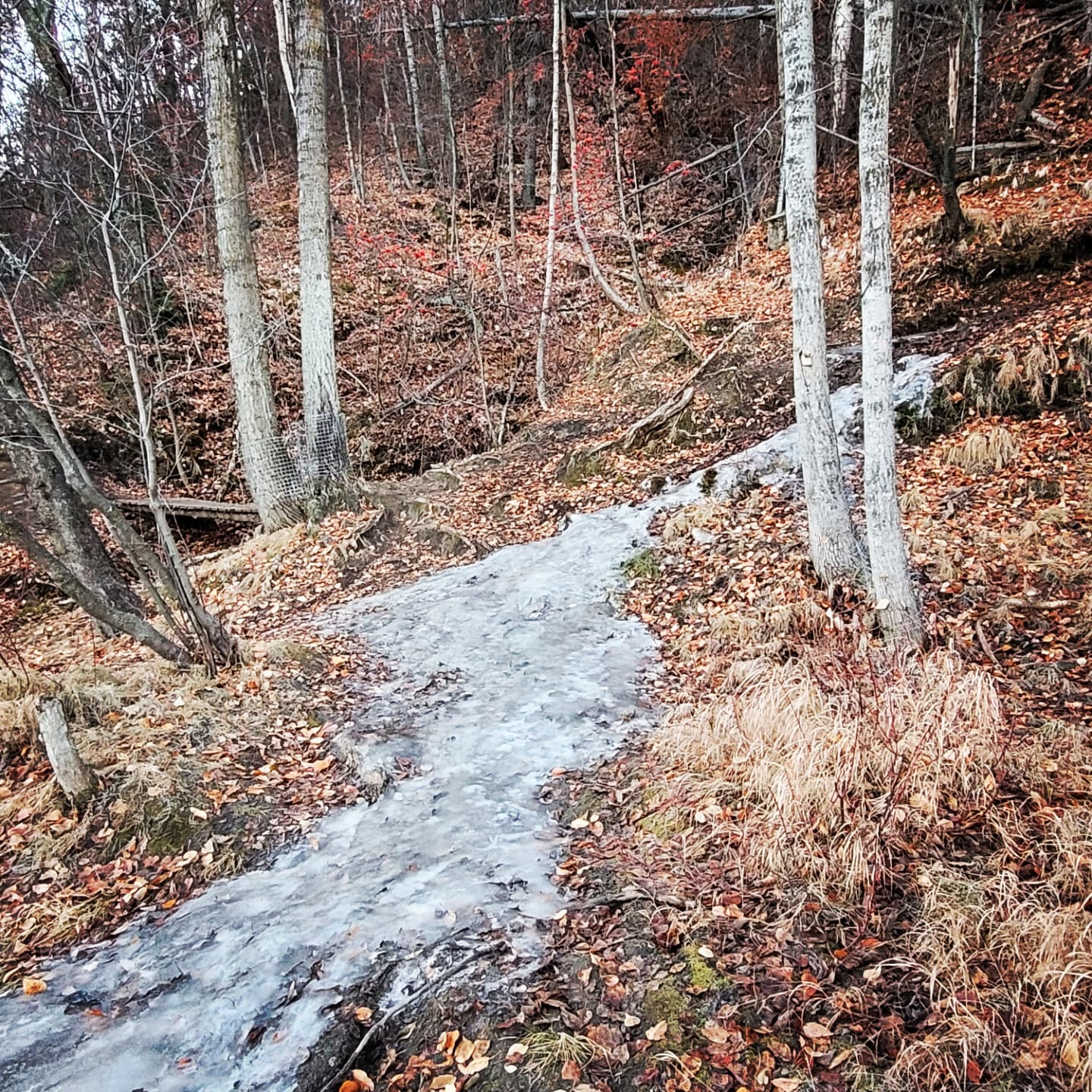
“As daylight begins fading in autumn and the air cools, deciduous trees prepare for wintering and stop making food — an energy expenditure too metabolically expensive in the dearth of sunlight. Enzymes begin breaking down the decommissioned chlorophyll, allowing the other pigments that had been there invisibly all along to come aflame. And because we humans so readily see in trees metaphors for our emotional lives, how can this not be a living reminder that every loss reveals what we are made of — an affirmation of the value of a breakdown?”
Maria Popova
As I’ve written before, my earliest memory is of laying in my baby buggy, looking into trees – the new green maple leaves and the spaces in between onto the sky. The fluttering and swaying, in the growing warmth of spring, caught my budding curiosity, creating a life-long affinity for their beauty and recognition of their healing balm and wisdom.
So it is that I appreciate Popova’s naming other, perhaps less ‘attractive’ metaphoric connections between ourselves and trees – death and breakdowns. And why this poem of Mary Oliver rings so deeply true:
WHEN I AM AMONG THE TREES
When I am among the trees,
especially the willows and the honey locust,
equally the beech, the oaks and the pines,
they give off such hints of gladness.
I would almost say that they save me, and daily.
I am so distant from the hope of myself,
in which I have goodness, and discernment,
and never hurry through the world
but walk slowly, and bow often.
Around me the trees stir in their leaves
and call out, “Stay awhile.”
The light flows from their branches.
And they call again, “It’s simple,” they say,
“and you too have come
into the world to do this, to go easy, to be filled
with light, and to shine.”
Much love and kindest regards, dear friends.





